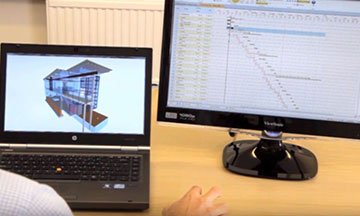Decision Making in Project Management
| Date | Venue | Duration | Fees | |
|---|---|---|---|---|
| 06 May - 10 May, 2024 | Paris | 5 Days | $5695 | Register |
| 13 May - 17 May, 2024 | Dubai | 5 Days | $4750 | Register |
| 03 Jun - 07 Jun, 2024 | Dubai | 5 Days | $4750 | Register |
| 08 Jul - 12 Jul, 2024 | Dubai | 5 Days | $4750 | Register |
| 21 Jul - 01 Aug, 2024 | Riyadh | 10 Days | $9150 | Register |
| 26 Aug - 06 Sep, 2024 | Dubai | 10 Days | $8775 | Register |
| 23 Sep - 27 Sep, 2024 | Dubai | 5 Days | $4750 | Register |
| 28 Oct - 01 Nov, 2024 | Dubai | 5 Days | $4750 | Register |
| 03 Nov - 07 Nov, 2024 | Doha | 5 Days | $4950 | Register |
| 24 Nov - 26 Nov, 2024 | Riyadh | 3 Days | $4100 | Register |
| 25 Nov - 29 Nov, 2024 | Dubai | 5 Days | $4750 | Register |
| 02 Dec - 06 Dec, 2024 | Dubai | 5 Days | $4750 | Register |
Course Overview
As a Project manager, you would typically make multiple decisions daily. Decisions could range from, approval of a business case, to evaluating solutions; from choosing the right vendor or team members, to mitigating risks or handling change requests. The project team members, rely on the project manager to provide guidance, and to help them make important decisions. Making good executive decisions requires making tough choices, and those tough choices come with a significant risk, both organisationally and personally.
What are the steps in decision-making?
Good decisions come from the use of a logical and rational process. When this process is used correctly, the project manager increases his/her chances of making the right decision. This decision-making process or the framework can guide you, especially when faced with, complex problems. Using this framework ensures consistency in how decisions are made and help to minimize and remove any personal bias.
What are the types of decision making?
Within the framework, there are many techniques, that can be applied to making decisions. However, there isn’t a Golden technique that can be applied to all decisions, made on a project. Having a toolbox with different techniques will allow a project manager to choose the relevant one, for the decision that needs to be made. The decision taken will have wide-ranging effects on the project and could mean the difference between success and failure.
This Zoe training course will provide a detailed framework for making better decisions in an effective, rational, and ethical way. It will empower, and equip you with the fundamentals of decision making, and teach the skills, tools, and techniques required to make executive decisions faster, incur less risk, and gain more support for your decisions.
This course will also help you find the relevant data and appropriate tools needed to support your decision-making, communicate decisions, and lead your organisation through the change. It’ll address some of the common challenges that arise from these high-stake decisions, such as cultural differences, quality of information, trust, and accountability so that you can make high-quality decisions with far-reaching positive impact.
Course Objectives
The course will empower professionals with:
- The ability to apply a decision-making framework, and process
- Tools and techniques that can help project managers to drive strong and quick decisions
- An awareness of knowing which tool/technique to apply for the practical decision to be made
- Different styles of decision making and an awareness of which style is best suited for the specific situation
- Recognize how to spot and avoid common challenges when making decisions, which could lead to bad decisions
- Apply the process of Critical thinking to effective decision making
- Skills and techniques to reduce decision-making risk
- The knowledge to deal with ambiguity, and how to reduce risk and plan for contingencies.
- Ability to apply these learnings to enhance individual leadership development and organisational performance
- Opportunities to work hands-on on relevant case studies
- Develop the fine skills needed to effectively build critical thinking and decision-making skills
Training Methodology
This collaborative Decision Making in Project Management Course will comprise the following training methods:
- Lectures
- Seminars & Presentations
- Group Discussions
- Assignments
- Case Studies & Functional Exercises
Like all our acclaimed Zoe courses, this program also follows the ‘Do-Review-Learn-Apply’ model.
Organisational Benefits
Organisations’ employees taking up this Decision Making in Project management training course will benefit in the following ways:
- Professionals who can make better, faster, informed decisions
- Enhancement in project delivery times, and quality, through increased organisational efficiency
- Decision-making process that eliminates unconscious biases that could hamper organisational values
- Achieve improved synergy within the Project teams due to the effective and timely decision-making, thus elevating employee morale and reducing frustrations, from waiting times
- Well-thought, fact-based decisions, reducing significant delays in getting stakeholder buy-in on critical decisions.
- Rapid organisational changes due to quick and impactful decisions
- Low risks of project failures due to the critical thinking, and risk management elements
Personal Benefits
Professionals attending this training course will have the following advantages:
- The required skillset and capabilities of successful Project Managers to utilize efficiency, through processes, tools, technology, and resources in the organisation
- Leadership and communication skills, to help build trust, and the ability to communicate effectively on your final decisions
- Techniques for involving stakeholders in the decision-making process
- The process of making rational, unbiased decisions, through:
- Obtaining complete and accurate data
- Ability to process data
- Examining your logic and your biases
- Self-awareness & Ethics
- Short-term and long-term impacts
- Enhanced perspective and foresight to foresee risk, challenges, and hindrances and to act upon these
- Develop comfort and competence to deal with ambiguity and uncertainty
Who Should Attend?
- Executives, Senior management, and management of an organisation who are accountable and responsible for the decisions made for the delivery of projects, project progress, and risk response, to name a few
- Active Project Managers looking to advance their skills in critical thinking and effective decision making
- Project Managers want to learn about decision-making styles, frameworks, processes, tools, techniques, skills, common challenges, and stakeholder management
- New project managers will benefit from early exposure to Decision making in the Project Management framework, process, and tools/techniques.
- Project Sponsors, Project Champions, Product Owners, and Business managers make daily decisions on how to progress the project and get what they need from their projects.
- Project team members, change management staff, organisational development staff, human resources personnel, and other team members who wish to learn and deepen their decision-making skills
- Any other professional who would like to know more about the decision-making framework, and process within the Project management scenario
Course Outline
Module 1: The Decision-Making Process & Critical Thinking
- Defining decision-making
- Defining the decision
- The importance of critical thinking
- Distinguish causes vs. consequences
- Break big problems into small ones
Module 2: Decision-Making Styles
- Choosing a decision-making style
- Autocratic decisions
- Participatory decisions
- Democratic decisions
- Consensus-based decisions
Module 3: Identify the Real Problem
- Define the problem statement
- What’s causing the problem
- Ask focusing questions
- Assess urgency
- Gather essential information
- Asking the five whys
- The Kepner-Tregoe process
- Pareto analysis
- Look at the whole system
Module 4: Project Stakeholder Management
- Involving stakeholders in decisions
- Using a RACI matrix
Module 5: Decision-making models to generate possible solutions
- SWOT Analysis
- Maslow’s Pyramid
- Pareto Principle
- Brainstorming
- Mind maps
- Monte Carlo Simulation
- Decision Tree Analysis
- Multiple criteria
- Boosting your creativity
Module 6: Generating objective criteria & selecting the best solution for the project
- Intuition and logic
- Rating charts
- Risk analysis
- Team decisions/voting
- Group Decision-Making Process (Unanimity, Majority, Plurality, Dictatorship)
- Elimination
- Sensitivity
- Four simple rules for decision making
- Don’t settle for second best
- Considering implementation feasibility
- Considering cost implications
Module 7: Managing Ambiguity
- Accepting ambiguity
- Evaluating highly predictable outcomes
- Assessing distinct possible outcomes
- Considering a spectrum of outcomes
- Managing unpredictable outcomes
Module 8: Common Problems / Common pitfalls when making decisions
- Mistaking the symptom, for the problem
- Cultural differences
- Quality of data
- Accountability and transparency
- Biases
- Trust
- Errors in logic
- False assumptions
- Unreliable memories
Module 9: Key Ingredients for Good Decision-Making
- Give Yourself Enough Time
- Adequate, and accurate data for making decisions
- Get All the Facts
- Using the right tools
- Think of the Consequences
- Communicating effectively
- Seeking Other Opinions
- Being Flexible
- Applying critical thinking every day
Module 10: Making the Decision & Monitor the Results
- Determining who’s involved
- Making the call
- Defining your measures
- Monitor outcome
- Declaring success
Module 11: Decision-making practical case-studies
- Acquisition
- System implementation
- Market expansion











